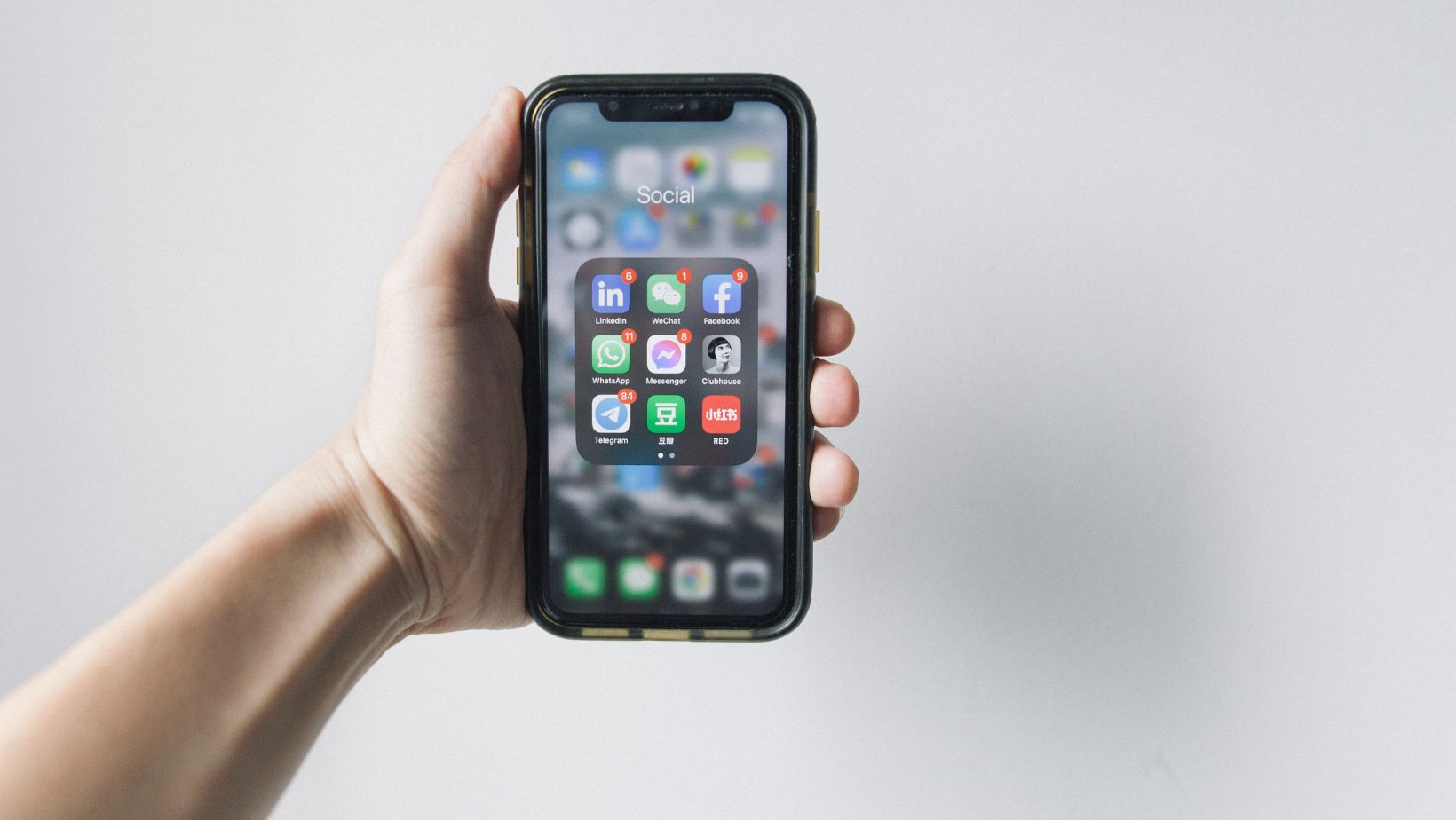Mobile apps have revolutionized the retail landscape giving shoppers unprecedented convenience and personalization at their fingertips. Today’s consumers expect seamless shopping experiences that blend physical and digital touchpoints making retail mobile apps an essential tool for modern businesses.
As smartphone usage continues to surge retailers are investing heavily in mobile technology to stay competitive. These apps offer features like one-click purchasing product recommendations and real-time inventory tracking while collecting valuable customer data. Research shows that customers who use retail mobile apps spend 46% more annually compared to those who don’t demonstrating the significant impact of mobile commerce on retail success.
Retail Mobile Apps
Retail mobile apps enable immediate product discovery by combining advanced search features with personalized recommendations. Mobile apps analyze customer browsing patterns, purchase history, and preferences to create tailored shopping experiences for each user.
Mobile apps streamline the purchasing process through:
- Integrated digital wallets for single-tap payments
- Stored shipping preferences for faster checkout
- Automated order tracking with real-time updates
- Barcode scanning for in-store price comparisons
- Digital loyalty cards with instant reward access
Retail apps bridge physical and digital commerce through innovative features:
- Virtual try-ons using augmented reality
- In-store navigation with interactive maps
- QR code scanning for product details
- Real-time inventory checks across locations
- Mobile-exclusive deals and promotions

Here’s how retail apps impact shopping behavior:
| Metric | Impact |
|---|---|
| Cart completion rate | 78% higher on apps vs mobile web |
| Average order value | 35% increase for app users |
| Purchase frequency | 3x more purchases per month |
| Customer retention | 85% higher for app users |
| Time spent shopping | 4x longer engagement per session |
The integration of artificial intelligence enhances shopping experiences by:
- Predicting future purchases based on behavior patterns
- Generating smart shopping lists from past transactions
- Offering voice-enabled shopping assistance
- Providing size recommendations using customer data
- Creating dynamic pricing based on demand patterns
- User-generated product reviews
- Shoppable social media feeds
- Live shopping events
- Group buying options
- Referral reward programs
Key Features of Successful Retail Apps
Successful retail mobile apps integrate essential features that enhance user engagement and drive conversions. These features focus on creating intuitive interfaces that maximize customer satisfaction and streamline the shopping journey.
User-Friendly Navigation
The navigation system in retail apps incorporates clear category hierarchies and advanced search functionality with filters. Key navigation elements include:
- Smart search bars with autocomplete suggestions
- Product categorization with nested subcategories
- Bottom navigation bars for quick access to core features
- Product image recognition for visual searches
- Gesture-based interactions for browsing catalogs
Personalized Shopping Experience
Personalization algorithms analyze user behavior to create tailored shopping environments. The customization includes:
- AI-powered product recommendations based on browsing history
- Size preferences stored for quick filtering
- Custom wishlists with sharing capabilities
- Personalized push notifications for sales and restocks
- Individual price alerts for tracked items
- One-tap buy options for registered users
- Multiple payment method integration
- Address verification and auto-completion
- Order summary with transparent pricing
- Express checkout with biometric authentication
| Checkout Feature | Impact on Conversion |
|---|---|
| One-tap buying | +45% completion rate |
| Biometric auth | -60% checkout time |
| Saved payments | +35% repeat purchases |
Benefits for Retailers and Customers
Retail mobile apps create a mutually beneficial ecosystem for businesses and shoppers. These platforms deliver measurable advantages in engagement metrics customer insights data analysis sales performance.
Increased Customer Engagement
Mobile apps drive 3.5x higher engagement rates compared to mobile websites. Push notifications achieve 50-80% open rates leading to:
- Instant alerts for flash sales special offers product launches
- In-app messaging for personalized product recommendations
- Interactive features like AR try-ons product customization tools
- Gamified loyalty programs with points challenges rewards
- Social sharing capabilities for reviews ratings photos
Enhanced Data Collection
Retail apps capture 300% more customer behavioral data points than traditional e-commerce platforms:
- Purchase history patterns preferences frequencies
- Browse-to-buy conversion paths product interactions
- Location data for geo-targeted promotions offers
- Customer feedback through in-app surveys ratings
- Usage metrics including session duration frequency paths
Improved Sales Conversion
Mobile apps demonstrate superior conversion metrics versus other retail channels:
| Metric | Mobile App Performance |
|---|---|
| Conversion Rate | 3x higher than mobile web |
| Average Order Value | 35% increase |
| Cart Abandonment | 20% lower than desktop |
| Repeat Purchase Rate | 50% higher than non-app users |
| Customer Lifetime Value | 2.5x greater than web-only customers |
- One-click purchasing with saved payment details
- Automated cart recovery notifications
- Personalized product recommendations
- Real-time inventory availability updates
- Mobile-exclusive deals discounts promotions
Security and Privacy Considerations
Data Protection Measures
Retail mobile apps employ multi-layered security protocols to safeguard sensitive customer information. End-to-end encryption protects payment data transactions while secure socket layer (SSL) certificates validate server connections. Advanced authentication methods include:
- Biometric verification through fingerprint or facial recognition
- Two-factor authentication via SMS or email codes
- Token-based security for payment processing
- Regular security patches and updates
- Secure data storage with AES-256 encryption
Compliance Standards
Mobile retail applications adhere to specific regulatory requirements for data protection:
| Compliance Standard | Key Requirements | Penalty for Non-compliance |
|---|---|---|
| PCI DSS | Payment data security | Up to $100,000 monthly |
| GDPR | User consent management | Up to €20 million |
| CCPA | Data disclosure protocols | $7,500 per violation |
User Privacy Controls
Retail apps integrate privacy features that give customers control over their data:
- Granular permission settings for device access
- Transparent data collection policies
- Option to delete stored payment information
- Privacy-focused guest checkout options
- Data sharing preferences management

Threat Prevention
Advanced security measures protect against common cyber threats:
- Real-time fraud detection algorithms
- Automated system monitoring
- DDoS attack prevention
- Secure API endpoints
- Regular vulnerability assessments
- Malware detection systems
- Verified payment gateway integrations
- Secure social media login protocols
- API authentication requirements
- Regular security audits of third-party services
- Encrypted data transmission between platforms
Future Trends in Retail Mobile Apps
Augmented Reality Integration
Retail mobile apps integrate advanced AR technologies to enhance virtual shopping experiences. Customers visualize products in their space through AR-powered features like virtual try-ons for clothing items, furniture placement visualization, and interactive product demonstrations. Major retailers report a 40% reduction in return rates for products previewed through AR features.
AI-Powered Personalization
Machine learning algorithms analyze customer behavior patterns to deliver hyper-personalized experiences. These systems process over 500 data points per user to create detailed shopping profiles, resulting in:
| Metric | Performance Improvement |
|---|---|
| Click-through Rate | +65% |
| Purchase Frequency | +45% |
| Customer Lifetime Value | +30% |
Voice Commerce Integration
Voice-enabled shopping features transform the mobile retail experience through natural language processing. Integration with virtual assistants enables hands-free shopping, with voice commerce transactions projected to reach $80 billion by 2023.
Social Commerce Features
Mobile retail apps incorporate social shopping elements to create interactive purchasing experiences:
- Live streaming shopping events with real-time purchase capabilities
- In-app social communities for product discussions
- Shoppable user-generated content feeds
- Group buying features with social discounts
Sustainable Shopping Tools
Environmental impact tracking features emerge as essential components in retail apps:
- Carbon footprint calculators for purchases
- Eco-friendly product filters
- Recycling program integration
- Sustainable packaging options
- Second-hand marketplace sections
Contactless Technologies
Advanced contactless solutions enhance the shopping experience:
- Smart QR code integration for product information
- Touchless payment systems
- Digital receipt management
- Proximity-based store navigation
- Automated checkout processes
Blockchain Integration
Retail apps implement blockchain technology for:
- Product authenticity verification
- Supply chain transparency
- Loyalty program management
- Secure payment processing
- Digital ownership certificates
These emerging technologies create seamless omnichannel experiences while addressing evolving consumer preferences for convenience, sustainability, and security in mobile retail.
The Future of Shopping
Retail mobile apps represent the future of shopping by seamlessly blending convenience personalization and security. Their impact on consumer behavior and business metrics demonstrates their essential role in modern retail strategy. With advanced features like AR integration AI-powered recommendations and secure payment systems these apps continue to evolve and reshape the retail landscape.
As technology advances and consumer expectations grow retail mobile apps will remain at the forefront of innovation. Businesses that embrace and optimize their mobile presence will be better positioned to thrive in an increasingly digital marketplace. The data speaks for itself – mobile apps aren’t just transforming retail they’re defining its future.



